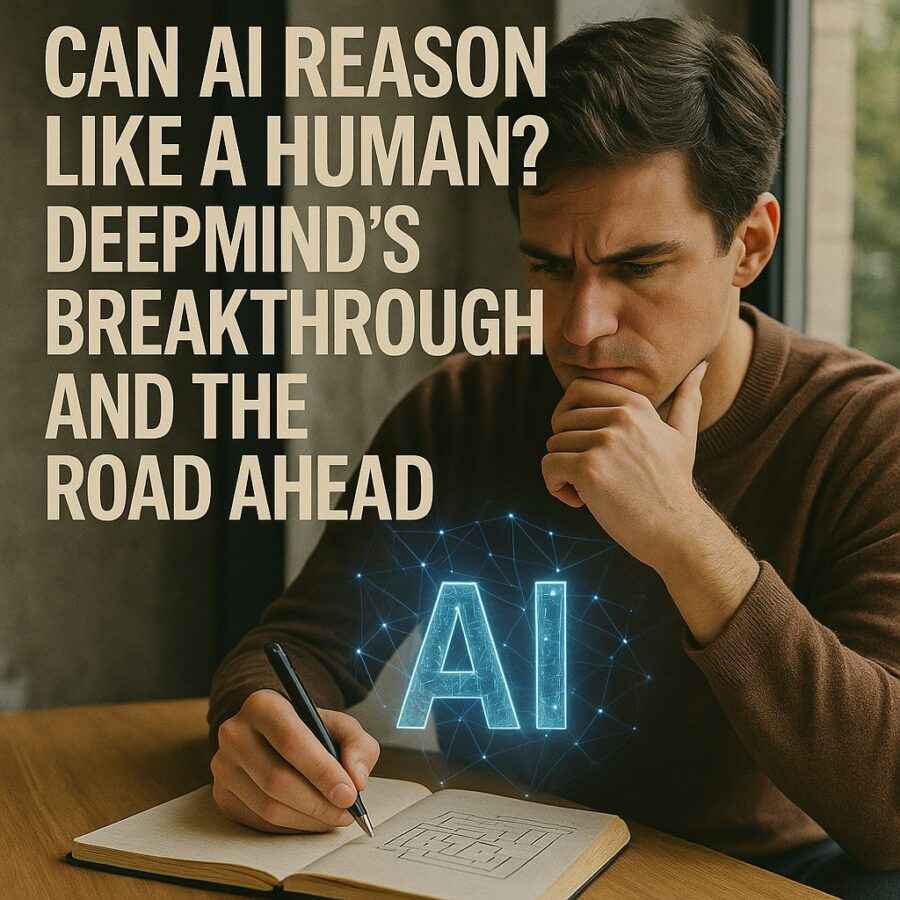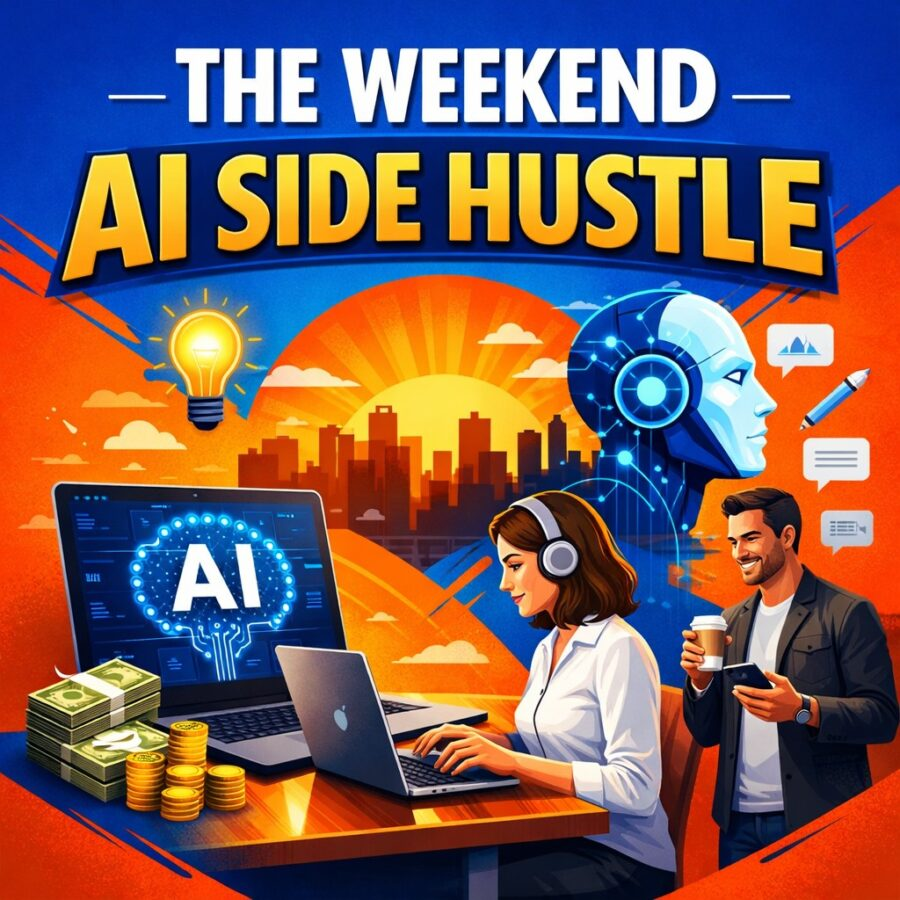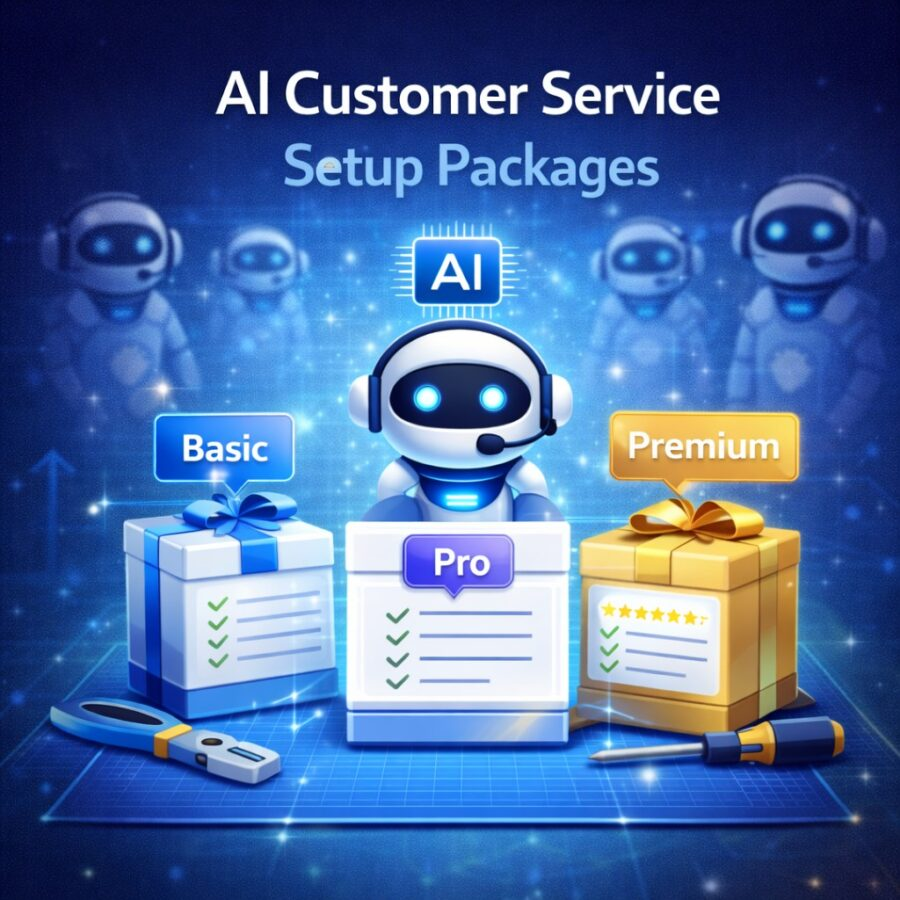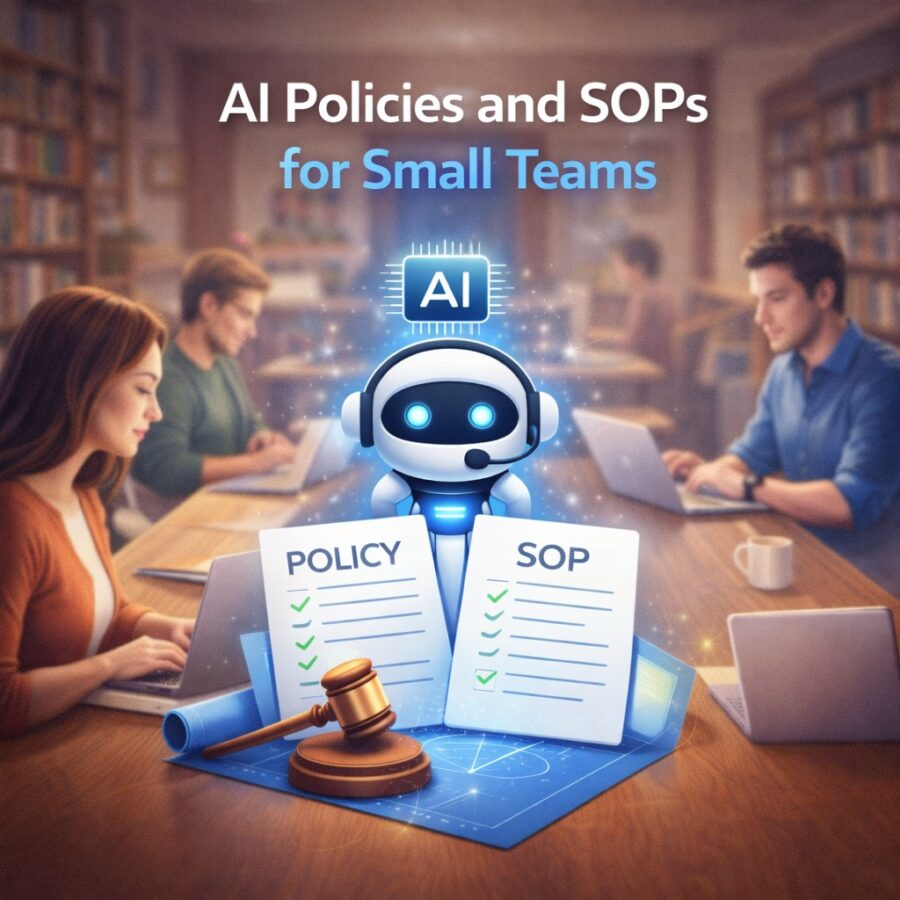Views: 3
Artificial intelligence has dazzled the world with its ability to generate language, create art, and solve complex problems. Yet the most profound question lingers: can AI reason like a human? This is not a matter of processing speed or memory. Reasoning involves drawing conclusions, weighing evidence, and adapting to uncertainty. DeepMind’s recent breakthrough reignites this debate, suggesting machines are closer than ever to demonstrating reasoning abilities once thought uniquely human.
This article explores the significance of that breakthrough, the limitations that remain, and the implications for the road ahead.
What Reasoning Means in Human Terms
To ask whether machines can reason, we must define reasoning. For humans, reasoning involves more than logic. It combines pattern recognition, contextual understanding, and the ability to apply knowledge flexibly. A child can infer that a glass of water will spill if tipped, not because they memorized a dataset, but because they generalize from experience.
Machines traditionally excel at pattern recognition but falter at generalization. Asking can AI reason like a human is therefore asking whether algorithms can leap beyond data-driven associations into adaptive, flexible thinking.
DeepMind’s Breakthrough
DeepMind recently unveiled a system that advances this frontier. Their new architecture integrates symbolic reasoning with neural networks. Unlike prior models that relied solely on statistical associations, this approach attempts to mimic structured thought.
In controlled tests, the system solved problems requiring step-by-step deduction, outperforming previous models. Tasks included logical puzzles, mathematical reasoning, and novel problem-solving exercises. While the results are not equal to human cognition, they represent a leap forward.
The announcement reignited discussions about can AI reason like a human, suggesting we are moving from surface-level mimicry toward deeper forms of intelligence.
Why This Matters
Reasoning underpins much of human activity. From making medical diagnoses to interpreting contracts, society depends on structured thought. If AI can develop reasoning skills, it could revolutionize fields that demand more than pattern recognition.
- Healthcare: AI could move from identifying symptoms to weighing differential diagnoses.
- Law: Systems could parse legal arguments and apply precedent with nuance.
- Science: Machines could generate hypotheses rather than just analyze data.
These possibilities illustrate why the question can AI reason like a human matters beyond academic curiosity. It touches real-world decision-making that shapes lives.
The Limitations of Current AI
Despite progress, today’s systems remain far from human reasoning.
- Context gaps: Machines struggle when information is incomplete or contradictory.
- Common sense: A child knows ice melts in heat, but many models cannot answer such basic questions without training data.
- Transfer learning: Humans adapt skills across domains. AI often fails outside narrow tasks.
- Ethics and values: Reasoning is not just about logic but about applying cultural norms and empathy. Machines lack this grounding.
These limitations remind us that asking can AI reason like a human must include recognition of what remains missing.
The Role of Data and Symbols
One debate in AI research centers on data-driven learning versus symbolic reasoning. Neural networks excel at statistical patterns, while symbolic systems handle rules and logic. DeepMind’s hybrid approach suggests progress lies in combining both.
For example, when solving a math word problem, statistical models might predict likely answers, but symbolic reasoning ensures adherence to mathematical rules. This marriage of methods shows promise for answering can AI reason like a human, though it remains experimental.
Philosophical Implications
The question of reasoning touches philosophy as much as technology. If a machine demonstrates reasoning, does it understand, or is it simply simulating? John Searle’s “Chinese Room” thought experiment argues that syntax alone does not equal semantics. Critics warn that even if AI outputs appear reasoned, true understanding may be absent.
This distinction matters. If can AI reason like a human means duplicating the appearance of reasoning, we may be close. If it means possessing genuine comprehension, the road ahead may be longer than enthusiasts suggest.
The following is a referral or affiliated link that AltPenguin receives compensation for, should the link be used and the offer is completed. To provide full transparency, we at AltPenguin are stating this before you click the image below (the image will open a new page to the offer shown in the image).
Human vs. Machine Reasoning
Comparing humans and machines highlights both similarities and differences.
- Speed: Machines process data faster than any human.
- Breadth: AI can analyze millions of documents instantly.
- Depth: Humans excel at abstract reasoning with limited data.
- Flexibility: People adapt across diverse situations; machines often fail outside their training.
These contrasts show why can AI reason like a human is not a binary question. AI may surpass humans in some aspects while lagging in others.
Risks of Overclaiming
Hype around AI reasoning risks public misunderstanding. Overstating progress may lead to misplaced trust in systems not ready for critical tasks. Autonomous decision-making in healthcare or law without human oversight could have severe consequences.
Regulators, researchers, and companies must avoid exaggeration. Answering can AI reason like a human responsibly means acknowledging boundaries and ensuring transparency.
Applications Emerging Today
Even without full human-level reasoning, AI systems already show promise in applied contexts.
- Education: Tutors use step-by-step reasoning to explain math problems to students.
- Finance: Risk models evaluate complex scenarios with logical frameworks.
- Customer support: Agents reason through multi-step inquiries instead of offering canned answers.
These examples show that while the answer to can AI reason like a human remains open, practical benefits are arriving now.
The following is a referral or affiliated link that AltPenguin receives compensation for, should the link be used and the offer is completed. To provide full transparency, we at AltPenguin are stating this before you click the image below (the image will open a new page to the offer shown in the image).
The Road Ahead
Future research will likely focus on several areas:
- Hybrid models: Combining neural networks with symbolic systems.
- Common sense databases: Embedding everyday knowledge into reasoning engines.
- Transparency tools: Explaining reasoning steps in human-understandable ways.
- Ethical alignment: Embedding human values into machine reasoning.
Progress in these areas will determine how close machines come to answering yes when asked can AI reason like a human.
Global Competition
Nations view reasoning AI as strategically important. DeepMind’s work represents Europe’s contribution, while U.S. labs like OpenAI and Anthropic explore similar paths. China invests heavily in reasoning AI for defense, economics, and governance.
This competition ensures rapid advancement but raises concerns about safety and ethics. The global race adds urgency to the question: can AI reason like a human, and at what cost will we find out?
The Human Role
Even if machines achieve reasoning, humans will remain essential. People provide context, cultural grounding, and moral judgment. Machines may assist, but human oversight ensures reasoning serves collective goals.
The narrative of can AI reason like a human must therefore be balanced with recognition of uniquely human contributions that machines cannot replicate.
Closing Thoughts
DeepMind’s breakthrough suggests that machines are inching closer to reasoning abilities once considered unreachable. Yet progress should be measured with humility. Human reasoning blends logic, experience, common sense, and empathy. Machines may replicate parts of this but remain incomplete.
The question can AI reason like a human remains unanswered, but the pursuit itself is reshaping research, philosophy, and society. The road ahead will be defined not just by technical milestones but by the choices we make about how reasoning machines fit into our world.
Whether the future holds machines that truly understand or merely simulate, the implications will reverberate across law, medicine, education, and daily life. Reasoning AI represents both opportunity and risk, demanding wisdom as well as innovation.



](https://altpenguin.com/wp-content/uploads/2025/08/veed-ad.webp)




